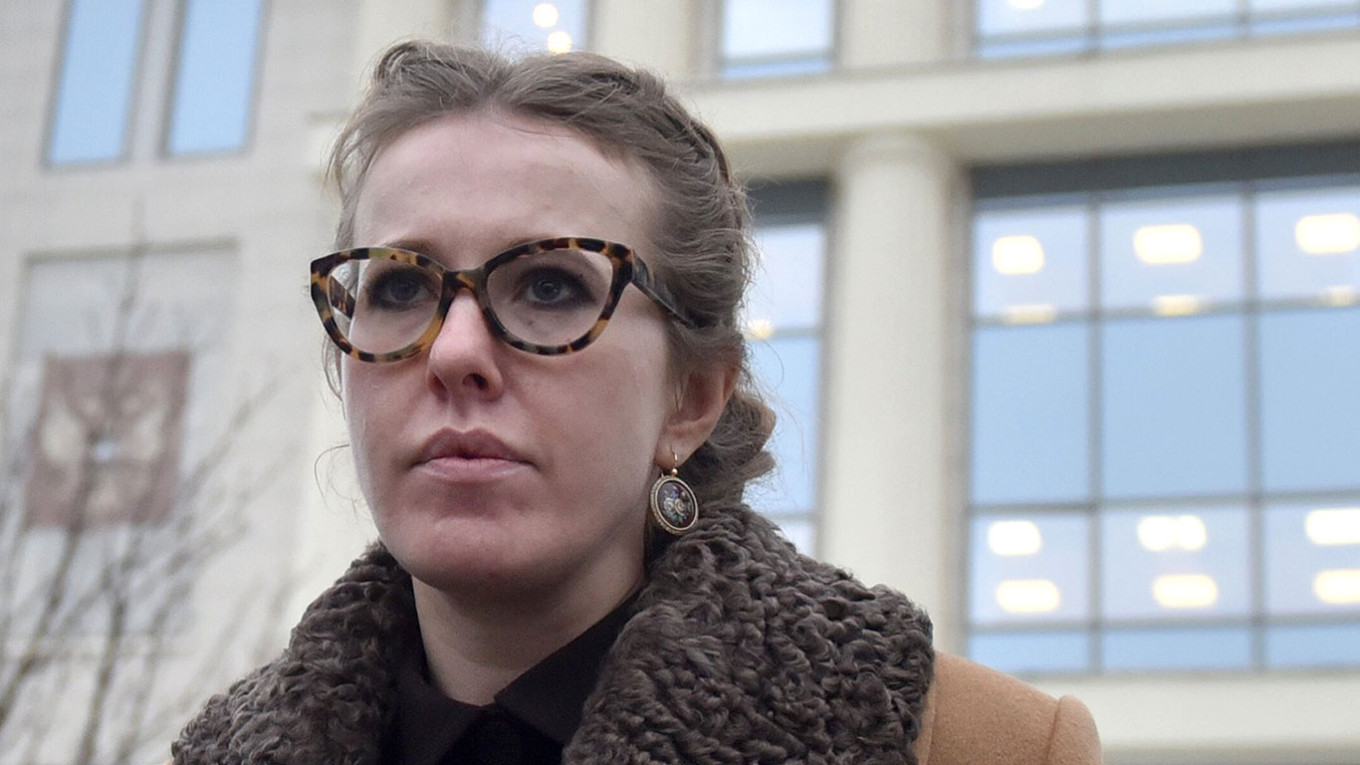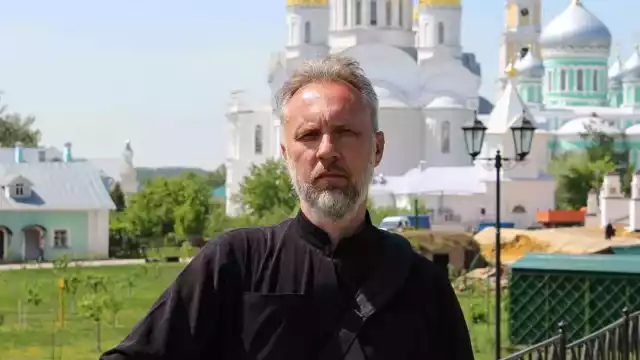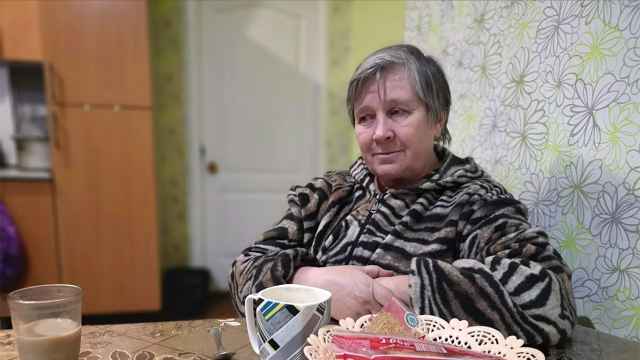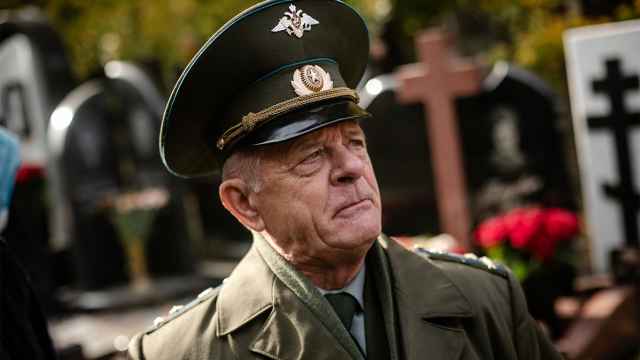Russian media personality Ksenia Sobchak has returned to Russia days after she fled the country amid police searches of her residence linked to an extortion case, state media reported on Monday.
Sobchak, 41, entered Lithuania on an Israeli passport in late October after Russian police raided her villa outside Moscow in connection with an investigation into a case of extortion linked to state defense and industrial conglomerate Rostec.
A business manager at Sobchak’s media holding and a former Russian fashion magazine editor were both arrested as part of the investigation, and could now face prison sentences of up to 15 years.
Sobchak was accompanied by her husband, theater director Konstantin Bogomolov, when she crossed from Latvia into western Russia’s Pskov region on foot on Monday, the RIA Novosti news agency reported, citing eyewitnesses.
Unconfirmed reports circulating on Telegram channels with links to Russia’s security services suggested that Sobchak was summoned for questioning as a witness in the extortion case.
Sobchak, whose father was the former mayor of St. Petersburg and President Vladimir Putin's mentor, Anatoly Sobchak, is rumored to be the president’s goddaughter.
Sobchak’s media holding appears to have been caught in the crosshairs of Rostec CEO Sergei Chemezov, a powerful Putin ally, BBC Russian reported last week.
In August, Chemezov and his aides launched a series of criminal cases against the administrators of Russian Telegram channels which are known to demand payments in exchange for removing critical coverage, according to BBC Russia correspondent Andrei Zakharov.
Sobchak herself has not commented on the reports of her return to Russia. In an unrelated post on her Telegram channel that appeared around the same time as the news of her return Monday, Sobchak wrote: "the idea that you can’t betray your motherland resonates with me."
Sobchak’s mother, Senator Lyudmila Narusova, predicted last week that her daughter would return to Russia "soon." But on Monday, she declined to comment on reports that Sobchak had returned.
A Message from The Moscow Times:
Dear readers,
We are facing unprecedented challenges. Russia's Prosecutor General's Office has designated The Moscow Times as an "undesirable" organization, criminalizing our work and putting our staff at risk of prosecution. This follows our earlier unjust labeling as a "foreign agent."
These actions are direct attempts to silence independent journalism in Russia. The authorities claim our work "discredits the decisions of the Russian leadership." We see things differently: we strive to provide accurate, unbiased reporting on Russia.
We, the journalists of The Moscow Times, refuse to be silenced. But to continue our work, we need your help.
Your support, no matter how small, makes a world of difference. If you can, please support us monthly starting from just $2. It's quick to set up, and every contribution makes a significant impact.
By supporting The Moscow Times, you're defending open, independent journalism in the face of repression. Thank you for standing with us.
Remind me later.






